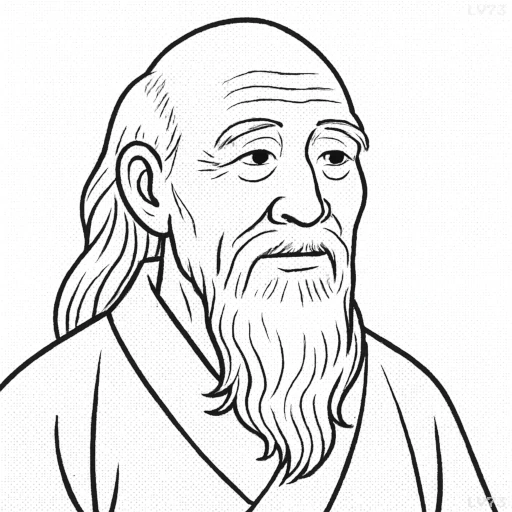“Manifest plainness, embrace simplicity, reduce selfishness, have few desires.”

- 571 BC? – 470 BC?
- Born in China
- Philosopher
table of contents
Quote
“Manifest plainness, embrace simplicity, reduce selfishness, have few desires.”
Explanation
This quote from Laozi encapsulates key principles of Daoist philosophy: simplicity, humility, and contentment. Laozi advocates for a life where we simplify our thoughts, actions, and desires, reducing the distractions and attachments that often lead to stress and discontent. To “manifest plainness” is to live openly, without pretense or complexity, and to express ourselves in a way that is authentic and unadorned. Embracing simplicity involves stripping away excess and focusing on what is truly necessary, both in terms of material possessions and emotional attachments. This leads to a life with fewer complications and greater peace. Additionally, reducing selfishness and desires means cultivating an attitude of selflessness and contentment, focusing on the needs of others and the present moment rather than constantly striving for more.
In today’s world, where materialism and ambition often dictate our goals, this quote offers a powerful reminder to focus on the simple pleasures in life and to avoid the constant pursuit of more—whether more possessions, achievements, or validation. By reducing desires, we free ourselves from the endless cycle of comparison and competition, allowing us to experience greater inner peace and fulfillment. It also invites us to rethink what constitutes a rich life, focusing less on accumulation and more on connection, well-being, and balance.
This principle can be applied in various aspects of modern life. For instance, in the context of personal growth, embracing simplicity can lead to greater clarity and mental space, helping us to focus on what truly matters. In relationships, reducing selfishness fosters compassion, understanding, and deeper connections with others. And in the broader context of society, living with fewer desires can reduce the impact of consumerism and promote more sustainable, community-oriented ways of living. Laozi’s wisdom encourages us to live simply, reduce unnecessary desires, and embrace the natural flow of life, finding joy in the present moment rather than chasing after fleeting external rewards.
Would you like to share your impressions or related stories about this quote in the comments section?


